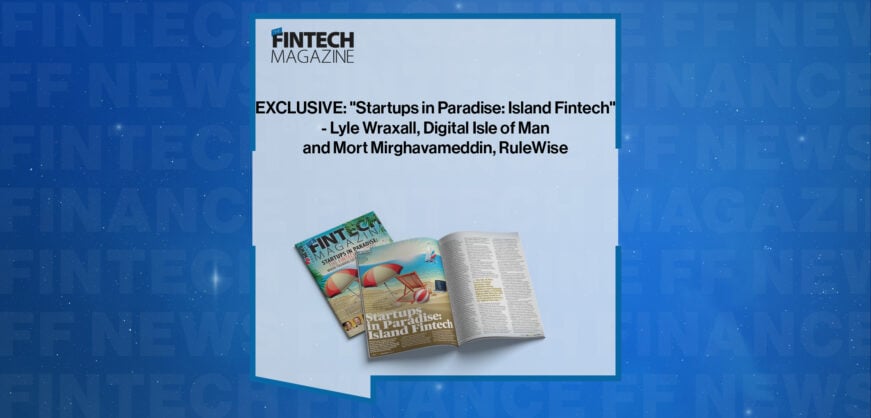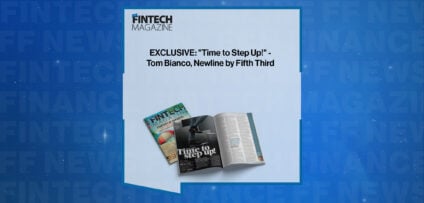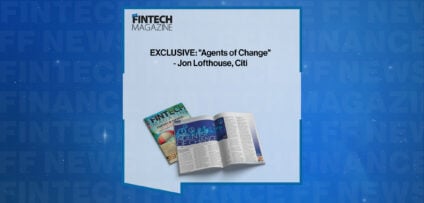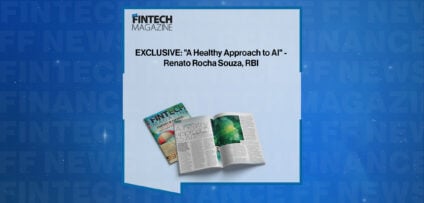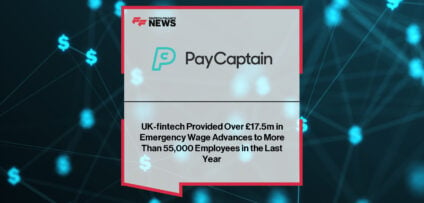Breaking News
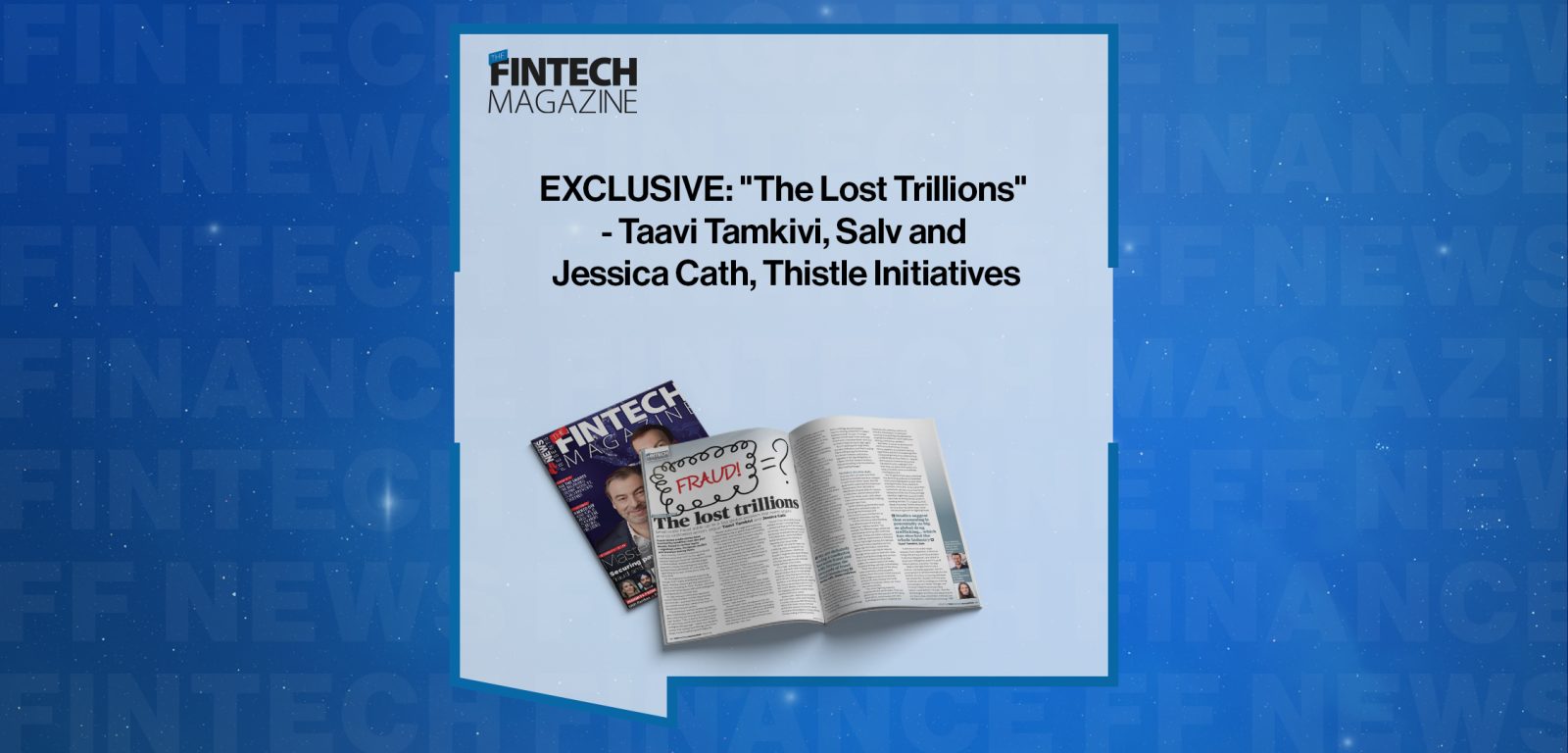
EXCLUSIVE: “The Lost Trillions” – Taavi Tamkivi, Salv and Jessica Cath, Thistle Initiatives in ‘The Fintech Magazine’
Small-scale fraud adds up to a big global problem that needs urgent and co-ordinated action, argue Taavi Tamkivi and Jessica Cath
Fraud-related media stories have haunted the headlines over the past decade, linked to serious topics – organised crime, European conflict and terrorism among them.
Most recently, sanctions imposed on Russia and those associated with its war against Ukraine, have seen financial institutions racing to shore up their systems to identify bogus payments, money laundering and activities by black-listed individuals. It’s not only the right thing to do, but, if they don’t, they risk hefty fines.
It’s the explosion in personal scamming, though, that’s really amplifying illicit money flows. And that doesn’t get the attention it deserves, according to Taavi Tamkivi, CEO and Co-founder of European AML and intelligence sharing platform provider Salv. He says ordinary individuals represent a practically limitless market opportunity for criminals – and that the money they are conned out of also needs to be ‘lost’ in the world’s financial system.
“Fraud and anti-money laundering (AML), were traditionally seen as distinct challenges [but now] they are mixing more and more,” says Tamkivi. “This is due to the heavy wave of scam fraud, which was tiny when it first emerged a decade ago – when the real dirty money that needed laundering came from drugs, human trafficking and oligarchs.
“Recent studies have suggested scamming is potentially as big as global drug trafficking, volume-wise, and exceeds trillions in monetary value, which has shocked the whole industry. I’m surprised by not only the speed of change but the speed of the industry response, because we love to think of fintechs as being super-fast, tech-savvy and adaptable. But criminals are changing their behaviours and how they operate way faster – which shows in the amount of money they are managing to steal from ordinary people.”
According to the Global Anti-Scam Alliance’s (GASA) latest report, The State Of Scams In The UK – conducted in association with the UK’s leading fraud prevention service, Cifas – victims lost £11.4billion to scams in 2024, up £4billion on the previous year.
“Studies suggest that scamming is potentially as big as global drug trafficking… which has shocked the whole industry “
“If criminals are selling drugs, their target addressable market is limited to people who have money and are addicted. But the whole world is their market for scam fraud schemes, opening up so many different dimensions for criminals and the crime fighters trying to stop them,” says Tamkivi.
Jessica Cath, from compliance and risk management consultancy Thistle Initiatives, agrees.
“While there are different typologies, themes and trends to each, we are definitely seeing a conflation between fraud and AML because the proceeds of fraud need laundering,” she says.
“Around 37 per cent of all UK crime, for example, is fraud – a very high number – and around 70 per cent of cases have ties to overseas. Some of those links overseas are particularly complicated, like scam factories in Southeast Asia, manned by trafficked people being forced into initiating and operating scams across borders.
“No matter how small the fraud, it has a really big impact on people who lose money,” she continues. “However, we shouldn’t forget the other types of financial crime, when there is a war going on here in Europe requiring sanctions, and people being trafficked across borders. It’s a huge, challenging issue and the UK is seen as a big hub for illicit money. You’ve got Russian kleptocrats and corrupt, politically exposed money flowing into the UK, and we’re still very much an enabler with lots of law firms, accounting practices, etc, supporting the money laundering infrastructure. Only last month (March), a law firm was fined for engaging with firms sending money to sanctioned Russian entities.”
Tamkivi adds: “Authorised push payment and scam fraud, unlike money laundering, is numerically measurable because victims report their stolen money to the local authorities, whereas no-one ever publicly complains about oligarchs’ or drug traffickers’ money, making it harder to quantify.
“Over recent months, reports from the US, UK, EU and Australia have shown people are losing billions. This is bringing more attention to the issue, and therefore more resources and smart people, to help resolve it.”
Both Cath and Tamkivi are joining the Call for a more robust and collaborative cross-industry approach.
“We can apply resources on a case-by-case basis to tackle all of it, but the scale we’re talking about needs something bigger,” says Cath. “Undoubtedly, firms need strong monitoring frameworks to identify, report, address and stop fraud from happening – they need to watch Super-fast payments coming in, particularly looking at inbound payments very quickly, risk assessing and deciding whether they’re fraudulent – backed by strong governance frameworks, policies and procedures,” says Cath. “But that’s difficult to do and this is bigger than individual firms.
“There are other layers, like domestic government frameworks. But then we need cross-border interaction, better ways of interacting, regionally and globally. Given some of the geopolitical pullback, nationalisation and lack of communication across borders, I am sceptical that some absolutely key regional and cross-border initiatives won’t be scaled back.
“We are seeing good programmes across Europe and in the UK, though, and other countries are looking to introduce something similar.
“We are definitely seeing a conflation between fraud and AML because the proceeds of fraud need laundering “
“Then the third element in this are the customers themselves. We need them to be aware of these scams and, although a controversial view, to take responsibility for their payments.”
Tamkivi believes the industry can and should do more, but, ironically, what’s holding it back is the desire to keep the customer happy.
“Enabling industry players to exchange hints or red flags about fraudulent cases is a missing component in today’s payments world,” he says. “A similar approach existed back in the early days of card and e-commerce fraud, and now we need to apply the same logic again. But I’m speaking with large banks and other institutions and they’re saying they’re willing to pay for the losses to maintain customer satisfaction, regardless of the legal obligations. If it doesn’t hit their baseline numbers, they are not willing to be too proactive about making changes.”
The links in the crime chain
Since late 2024, UK banks and other financial institutions have been obliged to cover fraud victims’ losses. But the government scaled back the maximum compensation from £415,000 to £85,000 and allowed banks to impose a £100 excess. Almost a third of APP fraud is for values under £100, which means many victims could get nothing and banks don’t lose. Tamkivi believes governments need to bring more pressure to bear, toencourage the financial crime community to overcome barriers to intelligent information sharing.
“The first element is understanding how different types of crime are happening,” explains Tamkivi. “For example, the different stages where the criminal gang comes up with tactics for their target market and which schema to use – banking impersonation, a romance scam or big-budget sharing, for example. How they’re selecting attack vectors, gathering information about their victims and then starting to execute through social media or telecoms. How they’re buying technology and services from their contacts to set up fake crypto sites where victims can make investments they will lose immediately.
“Then, the second part of the story is the movement of the proceeds, perhaps from the victim’s bank account with a large and secure institution, to accounts they already have with a fintech or neobank, which can move the money quickly. The crime-fighting industry understands the whole chain. They are gathering the first element of the story, about telcos, social media sites and technology providers; mapping out fraudulent IPs, websites, and so on. And this information is starting to move by sharing things like blacklisted or greylisted websites and IP addresses among community members.”
But when it comes to the financial institutions themselves, he says, misconceptions around data-sharing regulations and fear of breaching them is preventing many from collaborating as effectively as they need to – despite the Economic Crime and Corporate Transparency Act making it clear that they can share information if it stops economic crime or facilitates investigation of it.
The UK government also underlined this by issuing guidance in December 2024, encouraging peer-to-peer data sharing between firms related to economic crime. But, at the same time, institutions are even more fearful of falling foul of the law if they wrongly identify a legitimate account holder who ends up being denied access to banking services. It’s a Catch 22 that deeply frustrates Tamkivi because it’s led to a zero-risk rather than a true risk-based approach to fighting fraud.
“Institutions are under major pressure from regulators in terms of things like privacy and General Data Protection Regulation, and afraid to share any intelligence, even if it could have a positive outcome,” he says. “Now is the right time to use a mature, risk-based approach, but it’s proving hard to achieve mentally for the market. Sanctions-screening software has existed for 20 years and everyone is familiar with it, intelligence-sharing technologies are newer, though, and FIs must adapt to processes they haven’t used before,” he says. “But the technologies are there, the departments are there. And, remember, criminals are taking risks – and they’re winning.”
This article was published in The Fintech Magazine Issue 34, Page 48-49
- Bluefin and Basis Theory Partner to Enable Unified Tokenization Across Digital and In-Person Payments Read more
- Invest Bank and AUTON8 Build Partnership to Drive Digital Resilience and Banking Agility Read more
- ING’s AI Roadmap: Platform, People, and Agentic AI Read more
- UK-fintech Provided Over £17.5m in Emergency Wage Advances to More Than 55,000 Employees in the Last Year Read more
- TreviPay Announces AI-Powered Growth Center to Help Enterprises Predict Buyer Behavior and Drive B2B Sales Read more







